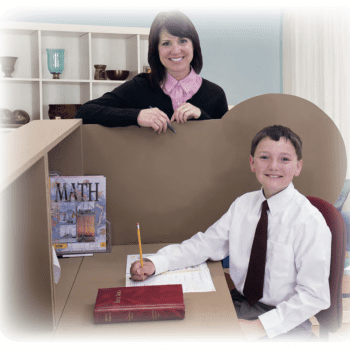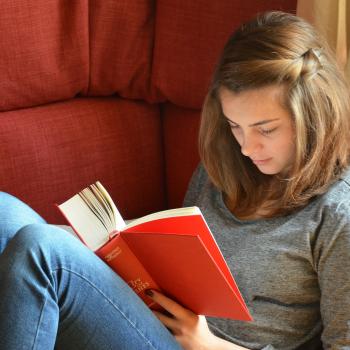In 2012, HSLDA opposed a New Jersey bill that would have allowed the Division of Family and Youth Services (DFYS) to determine whether children under their “care, supervision, or custody” should be prohibited from homeschool. The main reason this bill was introduced is that children who are homeschooled are not seen regularly by mandatory reporters in the way children who attend school are, and therefore children who are vulnerable or at risk of abuse may benefit from being in school. A perusal of the cases at Homeschooling’s Invisible Children drives this home—when abusive parents homeschool, their relative isolation can mean both that the abuse is worse and that it is harder for the child to find help.
Interestingly, HSLDA acknowledges in this piece that there are cases where it would make sense for DFYS to be able to make this sort of determination. They simply argue that the bill as written was “far too broad,” and as usual, they make no practical suggestions for improving it. They also argue that the bill was “probably unnecessary” because if a judge takes jurisdiction of a child as “usually happens in serious cases,” that judge “probably already has the power to make decisions about the child’s education.” I find the use of their word “probably” concerning. They’re lawyers, shouldn’t they know for sure?
But I’m getting off track here, because it’s not really HSLDA’s opposition to this bill that I want to talk about. Instead, I want to talk about the way HSLDA talks about abuse in their treatment of the bill. Mainly, it’s this paragraph I’m concerned with:
Children can be placed under DYFS care, custody or supervision for many reasons totally unconnected with education. For example—say a child gets in a fight at the local park, and a judge gives DYFS supervision of the child. It makes no sense whatsoever for DYFS to have power to veto the famiy’s homeschool program and force the child into public school. Or what if a baby gets sick and a judge decides the family waited too long to go to the emergency room, and places all the family’s other kids under DYFS supervision. There is no reason DYFS should have the power to force them to stop homeschooling. Or say a family is remodelling and the house is so messy that a judge gives DYFS supervision of the kids. Is there any reason to force them to stop homeschooling? Obviously not. OR say a family with 6 biological children adopts a 10-year old orphan from Russia who starts making up bizarre stories about maltreatment, and a judge gives DYFS supervision over all kids as a result. There is absolutely no reason for DYFS to have power to force all the kids into public school.
Wow. That’s a lot.
Frankly, if a judge places an entire family of children under DYFS supervision because of how long the family waited to take a sick child to the ER, you better believe the delay must have been significant. And if a judge orders a family of children under DYFS supervision because of how messy or dangerous a family’s house was, it’s not just dishes in the sink or outlets without safety plugs we’re talking about. And if a child gets into a fight at the park, and it’s bad enough for a judge to put the child under DYFS supervision as a result, there is probably more going on than a simple fight.
HSLDA’s argument appears to be that where and how children are educated is irrelevant to each of these cases, but I have to disagree. It may be irrelevant, in which case I would hope DYFS would allow homeschooling to continue, but it may not be irrelevant at all. Take the child who got in a fight at the park, for example. What if that child’s parents are not actually teaching them or supervising them and now they’re starting to get in trouble? Wouldn’t it be relevant for DYFS to be able to require the child to be sent to school? And in the other two cases—depending on the situation, it may be pertinent that the children be seen by mandatory reporters to ensure their safety and wellbeing while the issues involved are being dealt with.
Remember that the proposed law did not say DYFS must order the children to school. It left it to their discretion. In cases where the children being homeschooled (and not seen by mandatory reporters) was irrelevant to the other issues, DYFS could have allowed homeschooling to continue while the children are under its care, supervision, or custody.
But again I feel like I’m getting off track. I set out not to argue for or against this bill but rather to talk about the troubling way HSLDA discusses these various situations, as though they are no big deal—and especially the last one. So now that I’ve mentioned the first three cases HSLDA puts out there, let’s talk about that last one.
OR say a family with 6 biological children adopts a 10-year old orphan from Russia who starts making up bizarre stories about maltreatment . . .
I’m still having trouble coherently addressing this because I find it so upsetting.
It’s like the people at HSLDA have never heard of Nathaniel Craver or Alex Pavlis or Victor Matthey or Dennis Merryman. All four of these boys were adopted from Russia and then homeschooled by their parents. All four died as a result of their parents’ abuse or neglect. And if we want to widen the net farther, we can talk about Lydia Schatz or Hana Williams, who were also adopted from foreign countries, were also homeschooled, and also died at the hands of their parents.
I mean, seriously here. What is this “making up bizarre stories of maltreatment” thing? HSDLA appears to think that it is common or ordinary for a child to make false allegations of abuse. It is not. And when adopted children are significantly more at risk of abuse than other children, HSLDA’s phrasing here is the height of irresponsibility. HSLDA’s target audience for pieces like this is their member base. What does this communicate to their members? Well first, that children make up stories of maltreatment, and second, that this is especially the case for adopted children, and third, that this is even more the case for foreign adoptees.
What if Hana Williams had gotten up her courage and gone to another homeschooling mom in their social circle, telling her story asking for help? Would that mother have believed her, or, having read things like this, would she perhaps have written it off as a foreign adoptee’s “making up bizarre stories about maltreatment”?
I mean my goodness, if we widen the net to all adopted children who are homeschooled rather than just foreign adoptees, we have to talk about Christopher Smithberg and Colin David Jones and Christopher Forder and Joseph Beebe and Timothy Boss and Erica Lynn Parsons and Lucas Ciambrone and Nubia Barahona and Calista Springer and Ricky Holland and Crystal Ramirez and Austin and Edward Bryant and Samuel Hudson—and those are just children who have died. There are plenty more cases of gross abuse where the children made it out alive, though certainly not unscarred.
I am not saying that all homeschooled children who are adopted are abused, or even that most are. Far from it! What I am saying is that when it happens (and it does), this idea that foreign adoptees will make up “bizarre” stories of abuse can make it so much harder for that child to find help.
And so, when I got to that part of HSLDA’s statement, I wanted to tear my hair out. This is no way to talk about abuse. This sort of rhetoric actively undermines what little chance abused adoptees may have of getting help—especially when they are homeschooled and the number of adults they may have contact with outside of their parents’ circle of friends and acquaintances is limited.
Badly done, HSLDA. Badly done.














